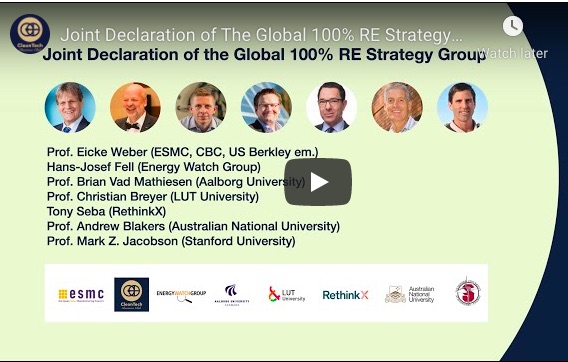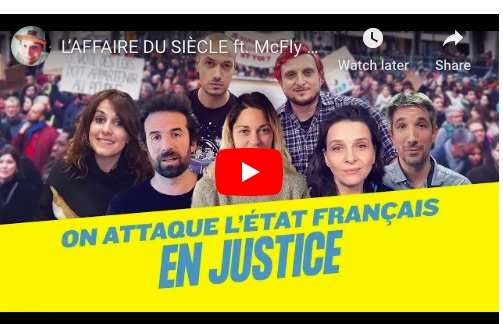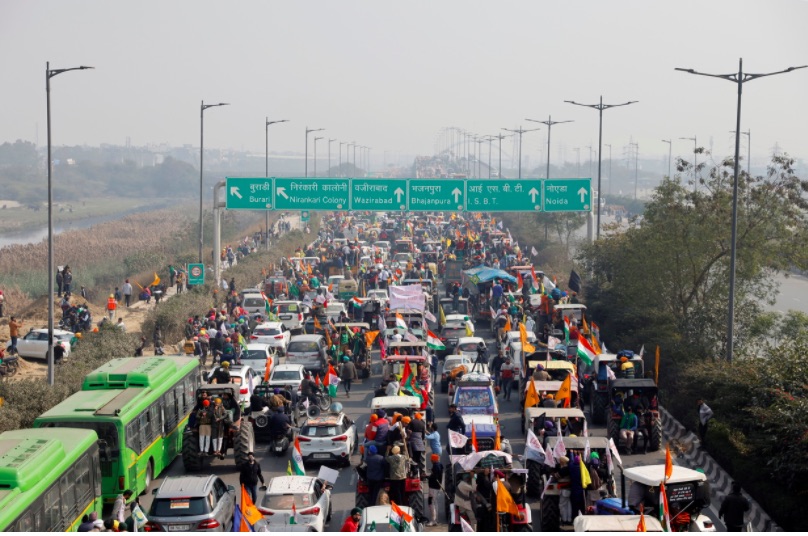. . SUSTAINABLE DEVELOPMENT . .
A press release from the United Nations Environmental Program
The world can transform its relationship with nature and tackle the climate, biodiversity and pollution crises together to secure a sustainable future and prevent future pandemics, according to a new report by the UN Environment Programme (UNEP) that offers a comprehensive blueprint for addressing our triple planetary emergency.

Launch of report
”
The report, Making Peace with Nature, lays out the gravity of these three environmental crises by drawing on global assessments, including those from the Intergovernmental Panel on Climate Change and the Intergovernmental Science-Policy Platform for Biodiversity and Ecosystem Services, as well as UNEP’s Global Environment Outlook report, the UNEP International Resource Panel, and new findings on the emergence of zoonotic diseases such as COVID-19.
The authors assess the links between multiple environmental and development challenges, and explain how advances in science and bold policymaking can open a pathway towards the achievement of the Sustainable Development Goals by 2030 and a carbon neutral world by 2050 while bending the curve on biodiversity loss and curbing pollution and waste. Taking that path means innovation and investment only in activities that protect both people and nature. Success will include restored ecosystems and healthier lives as well as a stable climate.
“By bringing together the latest scientific evidence showing the impacts and threats of the climate emergency, the biodiversity crisis and the pollution that kills millions of people every year, [this report] makes clear that our war on nature has left the planet broken,” UN Secretary-General António Guterres said in the report’s Foreword. “But it also guides us to a safer place by providing a peace plan and a post-war rebuilding programme.
“By transforming how we view nature, we can recognize its true value. By reflecting this value in policies, plans and economic systems, we can channel investments into activities that restore nature and are rewarded for it,” he added. “By recognizing nature as an indispensable ally, we can unleash human ingenuity in the service of sustainability and secure our own health and well-being alongside that of the planet.”
Amid a wave of investment to re-energize economies hit by the COVID-19 pandemic, the blueprint communicates the opportunity and urgency for ambitious and immediate action. It also lays out the roles that everyone – from governments and businesses to communities and individuals – can and must play. 2021 is especially crucial, with upcoming climate and biodiversity convention meetings – NFCCC COP 26 and CBD COP 15 – where governments must come up with synergistic and ambitious targets to safeguard the planet by almost halving greenhouse gas emissions in this decade, and by conserving and restoring biodiversity.
Tackling three planetary threats together
Economic growth has brought uneven gains in prosperity to a fast-growing global population, leaving 1.3 billion people poor, while tripling the extraction of natural resources to damaging levels and creating a planetary emergency. Despite a temporary decline in emissions due to the pandemic, Earth is heading for at least 3°C of global warming this century; more than 1 million of the estimated 8 million plant and animal species are at substantially increased risk of extinction; and diseases caused by pollution are currently killing some 9 million people prematurely every year. Environmental degradation is impeding progress towards ending poverty and hunger, reducing inequalities and promoting sustainable economic growth, work for all and peaceful and inclusive societies.
(article continued in right column)
Question for this article:
Despite the vested interests of companies and governments, Can we make progress toward sustainable development?
(Article continued from the left column)
The report shows how this trio of environmental emergencies interact and have common causes, and thus can only be effectively addressed together. Subsidies on fossil fuels, for instance, and prices that leave out environmental costs, are driving the wasteful production and consumption of energy and natural resources that are behind all three problems.
Inger Andersen, Executive Director of UNEP, said the report highlighted the importance of changing mindsets and values, and finding political and technical solutions that measure up to the Earth’s environmental crises.
“In showing how the health of people and nature are intertwined, the COVID-19 crisis has underlined the need for a step-change in how we view and value nature. By reflecting that value in decision-making – whether we are talking about economic policy or personal choices – we can bring about a rapid and lasting shift toward sustainability for both people and the environment,” she said. “‘Green recovery’ plans for pandemic-hit economies are an unmissable opportunity to accelerate the transformation.”
Released ahead of the fifth UN Environment Assembly, the report presents a strong case for why and how urgent action should be taken to protect and restore the planet and its climate in a holistic way.
It presents examples of what transformative change can look like, and how it can create prosperity, employment and greater equality. Far-reaching change involves recasting how we value and invest in nature, integrating that value into policies and decisions at all levels, overhauling subsidies and other elements of economic and financial systems, and fostering innovation in sustainable technologies and business models. Massive private investment in electric mobility and alternative fuels show how whole industries recognize the potential gains from shifting quickly.
The authors point out that ending environmental decline in all its forms is essential to advancing many of the Sustainable Development Goals, in particular poverty alleviation, food and water security and good health for all. An example is how intensifying agriculture and fishing in sustainable ways, allied with changes in diets and lower food waste, can help end global hunger and poverty and improve nutrition and health while sparing more land and ocean for nature.
Reinforcing the call for action, the report stresses the need for stakeholders at all levels of society to be involved in decision-making, and identifies dozens of key actions that governments, businesses, communities and individuals can and should undertake in order to bring about a sustainable world.
For instance:
* Governments can include natural capital in measures of economic performance, put a price on carbon and shift trillions of dollars in subsidies from fossil fuels, non-sustainable agriculture and transportation towards low-carbon and nature-friendly solutions
* International organizations can promote One Health approaches and ambitious international targets for biodiversity, such as expanded and improved protected area networks
* Financial organizations can stop lending for fossil fuels and develop innovative finance for biodiversity conservation and sustainable agriculture.
* Businesses can adopt the principles of the circular economy to minimize resource use and waste and commit to maintaining transparent and deforestation-free supply chains
* Non-government organizations can build networks of stakeholders to ensure their full participation in decisions about sustainable use of land and marine resources
* Scientific organizations can pioneer technologies and policies to reduce carbon emissions, increase resource efficiency and lift the resilience of cities, industries, communities and ecosystems
* Individuals can reconsider their relationship with nature, learn about sustainability and change their habits to reduce their use of resources, cut waste of food, water and energy, and adopt healthier diets
A sustainable future also means learning from the COVID-19 crisis to reduce the threat of pandemic diseases. The report underlines how ecosystem degradation heightens the risk of pathogens making the jump from animals to humans, and the importance of a ‘One Health’ approach that considers human, animal and planetary health together.
(Thank you to Phyllis Kotite, the CPNN reporter for this article.)










